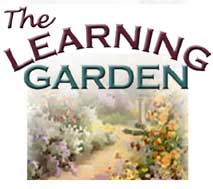
From Seed to Seed:
Plant Science for K-8 Educators
 |
From Seed to Seed: |
|
|
Native or exotic? Fortunately, the last few years have seen a resurgence in the popularity of "native" plants. Common sense tells us that native plants-those that have always grown in a particular habitat-are better adapted and will not cause trouble as some exotic plants have. What might surprise you, however, is how few common garden plants are
actually native to the United States. As we have already mentioned, the
black-eyed Although it may seem like a challenge to locate and use native plants in your gardening endeavors, it can be done. Many companies sell native seeds and plants for particular regions, and you can always contact your state's Department of Environmental Conservation for suggestions. This topic provides a wonderful opportunity for you to educate students about an issue. The National Science Education Standards require that students be introduced to environmental problems. After reading the above information about invasive plants, we think you'll agree that this is certainly an environmental problem worth noting!
Would you like to know more?
|
||||
|
Made possible by a grant from Oracle Corp. Copyright 2001, National Gardening
Association, Inc. For questions regarding this web site, contact Webmaster |